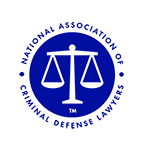Civil Litigation Practice
- Appeals
- Article 78 Proceedings
- Business Litigation
- Fraud Litigation
- Collections
Civil Litigation: What You Need to Know
Civil litigation is a legal process in which one party, the plaintiff, sues another party, the defendant, for damages or other relief. Civil litigation can arise from a variety of disputes, including personal injury, contract disputes, property disputes, and employment disputes.
The purpose of civil litigation is to resolve disputes between parties and to ensure that justice is served. Civil litigation can be a complex and time-consuming process, but it can also be an effective way to achieve a favorable outcome for a plaintiff.
The Basics of Civil Litigation:
A civil lawsuit begins with the filing of a complaint with the court. The complaint must state the plaintiff’s claims against the defendant, the facts that support the claims, and the relief that the plaintiff is seeking. The defendant then has an opportunity to respond to the complaint.
After the complaint and response have been filed, the parties may engage in discovery, a process in which they gather information from each other about the case. Discovery can include taking depositions, exchanging documents, and requesting admissions of fact.
Once discovery is complete, the parties may prepare for trial. This may involve filing motions, such as motions for summary judgment, and conducting pre-trial hearings.
If the case goes to trial, the parties will present their evidence to a judge or jury. The judge or jury will then decide the case.
The Importance of Representation:
Civil litigation can be a complex and time-consuming process. It is important to have an experienced civil litigation attorney represent you if you are involved in a civil lawsuit. An experienced attorney can help you understand your rights and options, and can represent you in court.
If you are considering filing a civil lawsuit and in need of an experienced civil litigation attorney, call Kratka Law Group now at 212-804-9054 or schedule your free legal consultation with the form below.
Practice Areas
Certifications & Affiliations












